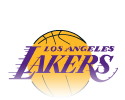Post by eric on Mar 20, 2017 14:01:02 GMT -6
; Or, Rings But for Luck
; Or, How I Learned to Stop Worrying and Love the Binomial Distribution
Here's how many titles each franchise should have won in 4.0 so far.
Here are how many years each team was the favorite.
h/t to Face-in, you the real MVPGM.
.
For reasons that will be made clear in a minute, here is how many titles each franchise should have won for the period 3016-3044, not including 3031.
And years as favorite.
h/t Heebs for lifting the Nets from a punch line in the early days to a top three team now.
w/f the Bulls for going from the top team in the early days to only surpassing the putrid Hawks since. Massive split personality :bruns:
.
.
Okay, so how did I get these numbers?
1. I took every playoff seeding as it was in life. For example in 3044 the Jazz were the #1 seed in the West.
2. To see how often a given team would beat another in a series, first we have to see how often a given team would beat another in a game, and to see how often that happens we have to see how often a given team will win in general, and this is why I split history into the two sets listed above. For the 3016-3044 (less 3031) period, we have team stats and so we can do Pythagorean Win-Loss. This turns out to be a more reliable indicator of how good a team is than plain win loss percentage, but in the era where we didn't have that information I just went with the latter. For example our 3044 Jazz won 80% of their games but their expected winning percentage by Pythagorean Win-Loss was 81%.
3. If two teams have the same winning percentage that's easy, it should be a 50/50 shot. If a team is 70% on average, it should win 70% of the time against an average opponent (i.e. 50%). But what if a 81% team plays a 55% team? What then, smart guy? In our software I have determined the following empirical formula for team A's chances of beating team B:
28.5/58 + team A winning % - (28 + team A winning %) * team B winning % / 29
With a maximum of 1 and a minimum of 0. Note that this doesn't solve to exactly 50% for two teams with equal winning percentages, but it gets very close and lets us know that our 81% team (the 3044 Jazz) will beat a 55% Clippers team 75% of the time.
.
It's important to take a small break here and point out that this formalism does not take into account injuries, DC changes, etc. in the playoffs or regular seasons. There would be no way of doing so anyway with so much information lost, but I did want to point it out.
.
4. Back to the math! Every playoff series is a best of seven, which is very convenient. While it is enormously more complicated to determine exactly how long a series would go, we don't have to do that if we just want to know who wins the series. We can employ the binomial distribution to see the chances of a team winning zero, one, two, or three games in a seven game set (that is, losing the series) given the chance of winning any given game which we will call W...
w^0 * (1-w)^7 * 7! / (0! * 7!) = 0 games won chance
w^1 * (1-w)^6 * 7! / (1! * 6!) = 1 game won chance
w^2 * (1-w)^5 * 7! / (2! * 5!) = 2 games won chance
w^3 * (1-w)^4 * 7! / (3! * 4!) = 3 games won chance
Summing those and collecting like terms we are left with...
(1 + 4w + 10w^2 + 20w^3) * (1-w)^4
And in our Jazz-Clippers case, we see the Jazz have a 93% chance of winning their first round series.
5. Now that we know how often a team wins any given series, we just need to multiply everything out. I will continue illustrating with the Jazz: after beating the Clippers they had a 42% chance of facing the Kings (whom they would beat in a series 75% of the time) and a 57% chance of facing the Timberwolves (winning 68% of those series). Therefore the Jazzer chances of winning a second round series were 93% * (42% * 75% + 57% * 68%) = 65%. We repeat this with four possible opponents in the Conference Finals, and eight possible opponents in the Finals to arrive at an overall chance of winning the title of 26%.
6. Now, because our chance of winning a game formula is empirical it turns out that the percentages don't quite add up to 100% at the end. I have therefore added a correction by simply scaling all championship chances proportional to the missing amount. For reasons that aren't clear to me and that would take far more effort than I care to expend, this turns out to be the same result as if we corrected every round to 100% along the way. To give a sense of scale, this correction changes the Jazz from 26% to 28%. I wouldn't worry about it if I were you. Here are the full numbers for last year's playoffs in bracket order:
7. And now we just add them all up! And get the numbers at the top of the page.
.
.
If you're still reading, wow. Here are some fun facts I found along the way:
On average the favorite (max % in any given year) had a 30% chance of winning the title.
In only three years was the favorite a favorite over the field: 3023 Nets (50.3%), 3021 Thunder (55%), 3008 Magic (57%)
The most wide open field (or least favored favorites) were in 3027 (16% Nets), 3000 (19% Timberwolves), 3009 (19% Magic), and 3037 (19% Bucks).
The least favorite team ever was the 3003 34-48 Raptors, who this formalism gave less than a one in a sixty million chance, and about a one in a thousand chance of even getting out of the first round against the 69-13 Bulls. Seems fair.
The favorite won 17 of the 45 (38%) championships, which given that our average is a 30% chance actually exceeds expectations.
There is also a small relationship between confidence of prediction and them succeeding: teams that didn't win the championship were on average 28% favorites, teams that won were 33%.
The 76ers haven't been an outright favorite since 3015, which speaks to just how brutal a path to the Finals they have. The 3042 season is especially instructive:
76ers have a 76% expected winning percentage, Trailblazers 77%. You might think they would end up pretty even.
WRONG
There were eight teams with 65%+ xW%s that year, and the 76ers had to get through four while the Blazers only two. This meant the 76ers ended up with a 20% chance at the title while the Blazers had 30%. Madness.
.
.
And that's it! I'll end it with a list of every year's favorite and % chance. Note that this uses current team names throughout. Let me know if you have any other questions!
; Or, How I Learned to Stop Worrying and Love the Binomial Distribution
Here's how many titles each franchise should have won in 4.0 so far.
3.71 76ers
3.59 Thunder
3.20 Nets
3.05 Bullets
2.74 Rockets
2.47 Suns
2.38 Celtics
2.11 Lakers
2.09 Kings
2.05 Jazz
1.87 Bulls
1.73 Trailblazers
1.69 Bucks
1.65 Timberwolves
1.47 Magic
1.40 Nuggets
1.01 Cavaliers
0.97 Raptors
0.90 Knicks
0.66 Bobcats
0.60 Clippers
0.60 SuperSonics
0.56 Grizzlies
0.52 Heat
0.51 Spurs
0.47 Hornets
0.44 Pacers
0.28 Hawks
0.27 WarriorsHere are how many years each team was the favorite.
7 Thunder
4 Jazz
4 Nets
4 Suns
3 Bullets
3 Celtics
3 Rockets
2 76ers
2 Bucks
2 Bulls
2 Lakers
2 Magic
2 Nuggets
2 Timberwolves
1 Kings
1 Knicks
1 Trailblazersh/t to Face-in, you the real MV
.
For reasons that will be made clear in a minute, here is how many titles each franchise should have won for the period 3016-3044, not including 3031.
3.05 Nets
2.81 76ers
2.37 Bullets
2.11 Suns
1.96 Thunder
1.70 Kings
1.41 Trailblazers
1.30 Celtics
1.19 Lakers
1.16 Jazz
1.09 Rockets
0.99 Nuggets
0.93 Bucks
0.87 Raptors
0.80 Knicks
0.49 SuperSonics
0.49 Heat
0.45 Cavaliers
0.39 Clippers
0.38 Timberwolves
0.34 Bobcats
0.29 Hornets
0.28 Magic
0.26 Grizzlies
0.25 Spurs
0.24 Warriors
0.22 Pacers
0.15 Bulls
0.05 HawksAnd years as favorite.
4 Nets
4 Suns
4 Thunder
3 Bullets
3 Celtics
2 Bucks
2 Jazz
1 Kings
1 Knicks
1 Lakers
1 Nuggets
1 Rockets
1 Trailblazersh/t Heebs for lifting the Nets from a punch line in the early days to a top three team now.
w/f the Bulls for going from the top team in the early days to only surpassing the putrid Hawks since. Massive split personality :bruns:
.
.
Okay, so how did I get these numbers?
1. I took every playoff seeding as it was in life. For example in 3044 the Jazz were the #1 seed in the West.
2. To see how often a given team would beat another in a series, first we have to see how often a given team would beat another in a game, and to see how often that happens we have to see how often a given team will win in general, and this is why I split history into the two sets listed above. For the 3016-3044 (less 3031) period, we have team stats and so we can do Pythagorean Win-Loss. This turns out to be a more reliable indicator of how good a team is than plain win loss percentage, but in the era where we didn't have that information I just went with the latter. For example our 3044 Jazz won 80% of their games but their expected winning percentage by Pythagorean Win-Loss was 81%.
3. If two teams have the same winning percentage that's easy, it should be a 50/50 shot. If a team is 70% on average, it should win 70% of the time against an average opponent (i.e. 50%). But what if a 81% team plays a 55% team? What then, smart guy? In our software I have determined the following empirical formula for team A's chances of beating team B:
28.5/58 + team A winning % - (28 + team A winning %) * team B winning % / 29
With a maximum of 1 and a minimum of 0. Note that this doesn't solve to exactly 50% for two teams with equal winning percentages, but it gets very close and lets us know that our 81% team (the 3044 Jazz) will beat a 55% Clippers team 75% of the time.
.
It's important to take a small break here and point out that this formalism does not take into account injuries, DC changes, etc. in the playoffs or regular seasons. There would be no way of doing so anyway with so much information lost, but I did want to point it out.
.
4. Back to the math! Every playoff series is a best of seven, which is very convenient. While it is enormously more complicated to determine exactly how long a series would go, we don't have to do that if we just want to know who wins the series. We can employ the binomial distribution to see the chances of a team winning zero, one, two, or three games in a seven game set (that is, losing the series) given the chance of winning any given game which we will call W...
w^0 * (1-w)^7 * 7! / (0! * 7!) = 0 games won chance
w^1 * (1-w)^6 * 7! / (1! * 6!) = 1 game won chance
w^2 * (1-w)^5 * 7! / (2! * 5!) = 2 games won chance
w^3 * (1-w)^4 * 7! / (3! * 4!) = 3 games won chance
Summing those and collecting like terms we are left with...
(1 + 4w + 10w^2 + 20w^3) * (1-w)^4
And in our Jazz-Clippers case, we see the Jazz have a 93% chance of winning their first round series.
5. Now that we know how often a team wins any given series, we just need to multiply everything out. I will continue illustrating with the Jazz: after beating the Clippers they had a 42% chance of facing the Kings (whom they would beat in a series 75% of the time) and a 57% chance of facing the Timberwolves (winning 68% of those series). Therefore the Jazzer chances of winning a second round series were 93% * (42% * 75% + 57% * 68%) = 65%. We repeat this with four possible opponents in the Conference Finals, and eight possible opponents in the Finals to arrive at an overall chance of winning the title of 26%.
6. Now, because our chance of winning a game formula is empirical it turns out that the percentages don't quite add up to 100% at the end. I have therefore added a correction by simply scaling all championship chances proportional to the missing amount. For reasons that aren't clear to me and that would take far more effort than I care to expend, this turns out to be the same result as if we corrected every round to 100% along the way. To give a sense of scale, this correction changes the Jazz from 26% to 28%. I wouldn't worry about it if I were you. Here are the full numbers for last year's playoffs in bracket order:
.2437 76ers
.0013 Bulls
.1017 Nets
.0109 Pacers
.0458 Hornets
.0040 Hawks
.0744 Knicks
.0020 Cavaliers
.2838 Jazz
.0003 Clippers
.0183 Kings
.0436 Timberwolves
.1170 Warriors
.0026 Thunder
.0325 Rockets
.0183 Trailblazers7. And now we just add them all up! And get the numbers at the top of the page.
.
.
If you're still reading, wow. Here are some fun facts I found along the way:
On average the favorite (max % in any given year) had a 30% chance of winning the title.
In only three years was the favorite a favorite over the field: 3023 Nets (50.3%), 3021 Thunder (55%), 3008 Magic (57%)
The most wide open field (or least favored favorites) were in 3027 (16% Nets), 3000 (19% Timberwolves), 3009 (19% Magic), and 3037 (19% Bucks).
The least favorite team ever was the 3003 34-48 Raptors, who this formalism gave less than a one in a sixty million chance, and about a one in a thousand chance of even getting out of the first round against the 69-13 Bulls. Seems fair.
The favorite won 17 of the 45 (38%) championships, which given that our average is a 30% chance actually exceeds expectations.
There is also a small relationship between confidence of prediction and them succeeding: teams that didn't win the championship were on average 28% favorites, teams that won were 33%.
The 76ers haven't been an outright favorite since 3015, which speaks to just how brutal a path to the Finals they have. The 3042 season is especially instructive:
76ers have a 76% expected winning percentage, Trailblazers 77%. You might think they would end up pretty even.
WRONG
There were eight teams with 65%+ xW%s that year, and the 76ers had to get through four while the Blazers only two. This meant the 76ers ended up with a 20% chance at the title while the Blazers had 30%. Madness.
.
.
And that's it! I'll end it with a list of every year's favorite and % chance. Note that this uses current team names throughout. Let me know if you have any other questions!
year chp% team
3044 .284 Jazz
3043 .243 Knicks
3042 .296 Trailblazers
3041 .354 Nets
3040 .272 Celtics
3039 .208 Rockets
3038 .241 Celtics
3037 .191 Bucks
3036 .244 Bucks
3035 .230 Bullets
3034 .310 Bullets
3033 .305 Bullets
3032 .214 Jazz
3031 .290 Nuggets
3030 .249 Celtics
3029 .208 Lakers
3028 .253 Nuggets
3027 .159 Nets
3026 .324 Kings
3025 .206 Suns
3024 .298 Nets
3023 .504 Nets
3022 .374 Thunder
3021 .548 Thunder
3020 .439 Thunder
3019 .338 Thunder
3018 .355 Suns
3017 .399 Suns
3016 .248 Suns
3015 .267 76ers
3014 .306 76ers
3013 .268 Rockets
3012 .381 Rockets
3011 .221 Thunder
3010 .285 Bulls
3009 .187 Magic
3008 .567 Magic
3007 .322 Timberwolves
3006 .328 Lakers
3005 .414 Thunder
3004 .250 Thunder
3003 .316 Bulls
3002 .350 Jazz
3001 .312 Jazz
3000 .185 Timberwolves















